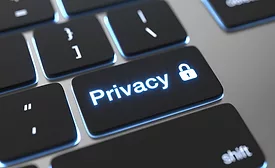Cybersecurity
Cloud security priorities of “pandemic-evolved” businesses
High-performing security organizations driving dramatic and substantive change, and reaping the benefits of going “all in” on cloud
June 11, 2021
Sign-up to receive top management & result-driven techniques in the industry.
Join over 20,000+ industry leaders who receive our premium content.
SIGN UP TODAY!Copyright ©2026. All Rights Reserved BNP Media.
Design, CMS, Hosting & Web Development :: ePublishing











